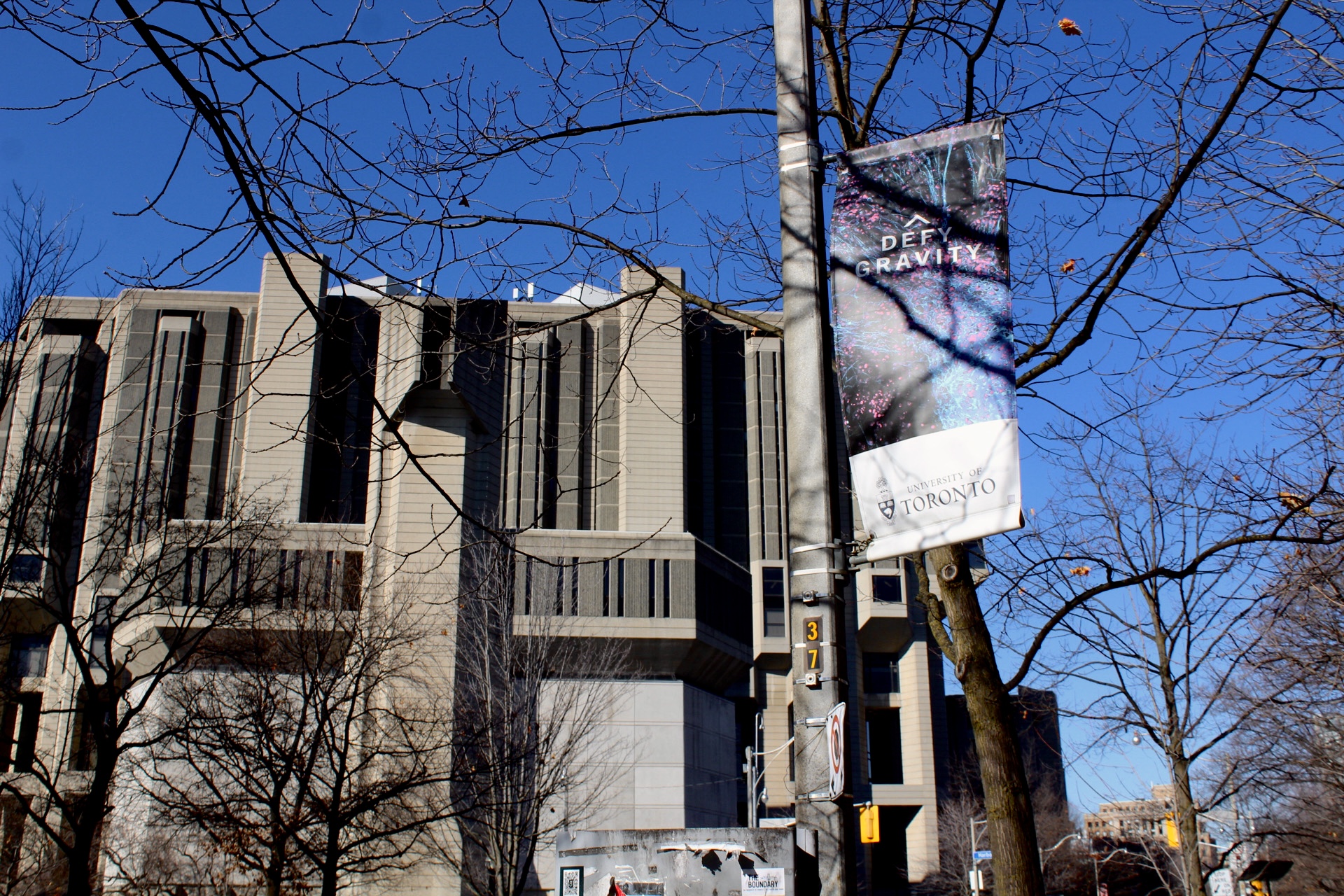U of T professor supports petitions to fire Columbia University professor
Amidst pro-Palestinian protests and debates on free speech, U of T Professor Ruth Marshall accuses Columbia Professor Shai Davidai of bullying pro-Palestinian students.
On January 17, a University of Toronto (U of T) professor waded into the debate of the status of pro-Palestinian speech in universities by supporting the termination of Dr. Shai Davidai, an associate professor at Columbia University and an outspoken advocate for Zionism.
Dr. Ruth Marshall, an associate professor specializing in religion and political science at U of T’s St. George Campus, replied to an X thread by verified user @persianjewess, who reposted an original post by Dr. Davidai condemning the petitions students have created demanding his firing.
In response to what he describes as “pro-terror organizations” at Columbia, he writes, “In an effort to silence me, they are now petitioning that I be ‘removed from teaching and contact with students.’”
Many verified users responded to his post, including X users @Solo11631282, who wrote, “I don’t think your students are worrying,” and @dead_in_ny, who responded, “Someone [is] getting desperate.”
Dr. Marshall, replying on X, declared her support for these petitions by accusing Dr. Davidai of “using his bully pulpit to call undergrads ‘terrorists’ because they stand with Palestine and criticize Israel for the ongoing genocide.”
The dispute between the two professors has triggered many harsh responses from X users that support both sides of the argument. On one side, users like @persianjewess accused Dr. Marshall of being a “Jew hater” for seemingly advocating for Dr. Davidai’s removal. On the other side, users like @AlaHamdann condemned Dr. Davidai for his outspoken Zionism, calling him “the professor who encouraged genocide” against Palestinians.
Dr. Davidai demonstrated his condemnation of pro-Palestinian speech in various incidents. In a 60 Minutes interview on December 3, 2023, he equated the pro-Palestinian stance adopted by some Columbia University student groups as evidence that these organizations also support Hamas—accusing Columbia University President Minouche Shafik of “cowardice” and “callousness” for not doing enough against these views.
In the same interview, Dr. Davidai also expressed his belief that pro-Palestinian stances should not be protected by free speech, justifying it by linking these views as akin to supporting the lynchings of African Americans and ending by calling for “equal treatment” of Jewish faculty against pro-Palestinian views.
On the other hand, Dr. Marshall has been a consistent defender of Palestinian rights, posting on January 15 about her displeasure at the disproportionate way many media outlets had been covering Israel in its attacks on the Gaza Strip.
In a January 22 post, Dr. Marshall also made her stance against antisemitism very clear by warning against far-right provocateurs that spread antisemitic talking points by masking themselves as pro-Palestinian.
Since Dr. Davidai’s initial post, tensions surrounding the status of pro-Palestinian speech have only intensified.
On January 19, peaceful pro-Palestinian student protesters organized by various pro-Palestinian student groups within Columbia University were sprayed with a substance known as “Skunk,” a chemical produced in Israel as a means of crowd control within the West Bank.
The protesters had been advocating for university administrators to divest their funds and otherwise increase their financial transparency to prove that money had not been going into Israeli arms.
In the aftermath, on January 22, Columbia officials attacked the protestors for participating in an “unsanctioned” university activity that “violated university policies,” while seemingly downplaying the subsequent chemical attack that followed.
In response, on January 25, other Columbia professors slammed university administrators for Columbia’s “climate of censorship and retaliation for Pro-Palestinian activism” and harshly criticized its “clumsy handling” of the incident.
Dr. Marshall and Dr. Davidai both denounced the attacks once it was apparent that students were affected by the Skunk chemical in the January 19 protests. However, Dr. Davidai has also called for the expulsion of the protest organizers on January 23 for organizing “the havoc of unorganized pro-Hamas protests.”
Since then, on January 22, Dr. Davidai published a blog about the reasons for his Zionist position before he condemned the attacks, describing Zionism as a means to create a “safe space” for Jews by having “a place for [their] own” in Palestine.
In a January 20 X post, Dr. Marshall implicated Dr. Davidai’s rhetoric as a possible motive behind the Skunk attack and general hostility towards pro-Palestinian students.
In another X post written on January 24, she elaborated on this position. Replying to a post about Dr. Davidai belittling a student for pro-Palestinian views even though that student had lost family in Gaza, Dr. Marshall described Dr. Davidai’s accusations as “unhinged” and urged others to perceive them “as incitement to violence.”
The feud between Dr. Marshall and Dr. Davidai illustrates the broader polarization between pro-Israeli and pro-Palestinian commenters. At the same time, the chemical attack on Columbia University’s pro-Palestinian protesters has emphasized the continued need for universities to defend freedom of speech, especially in campus environments, from similar hostile acts.

